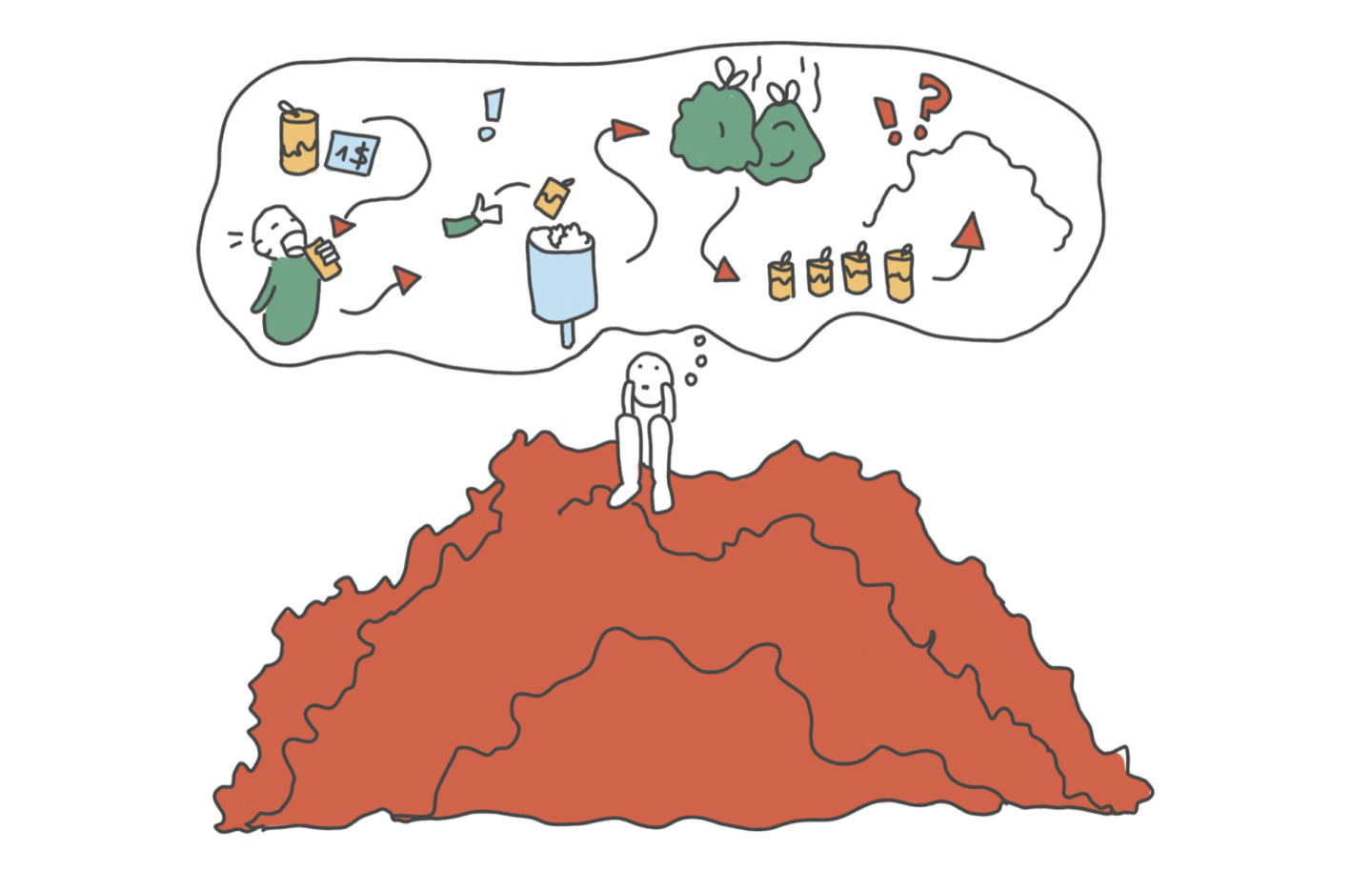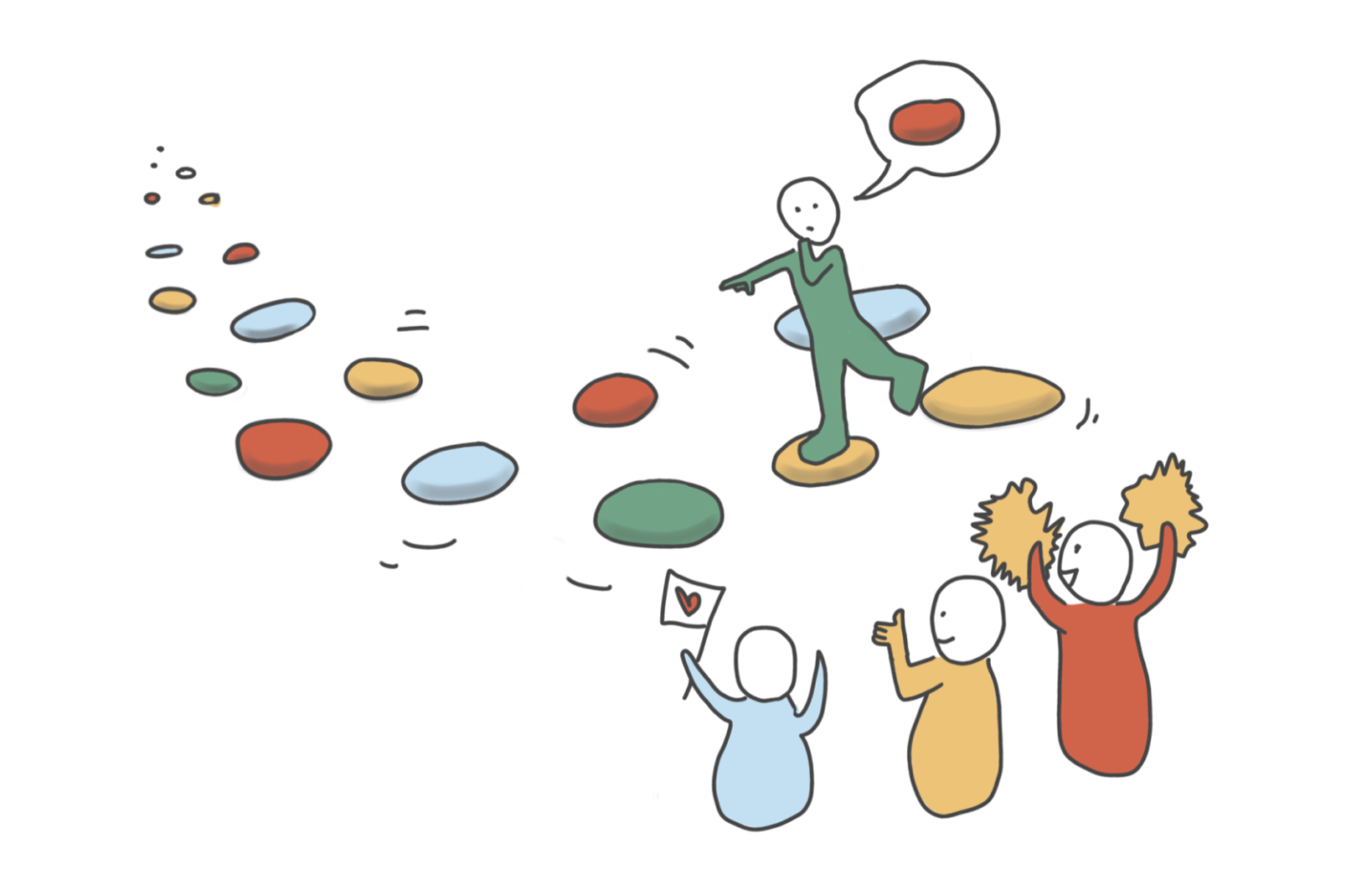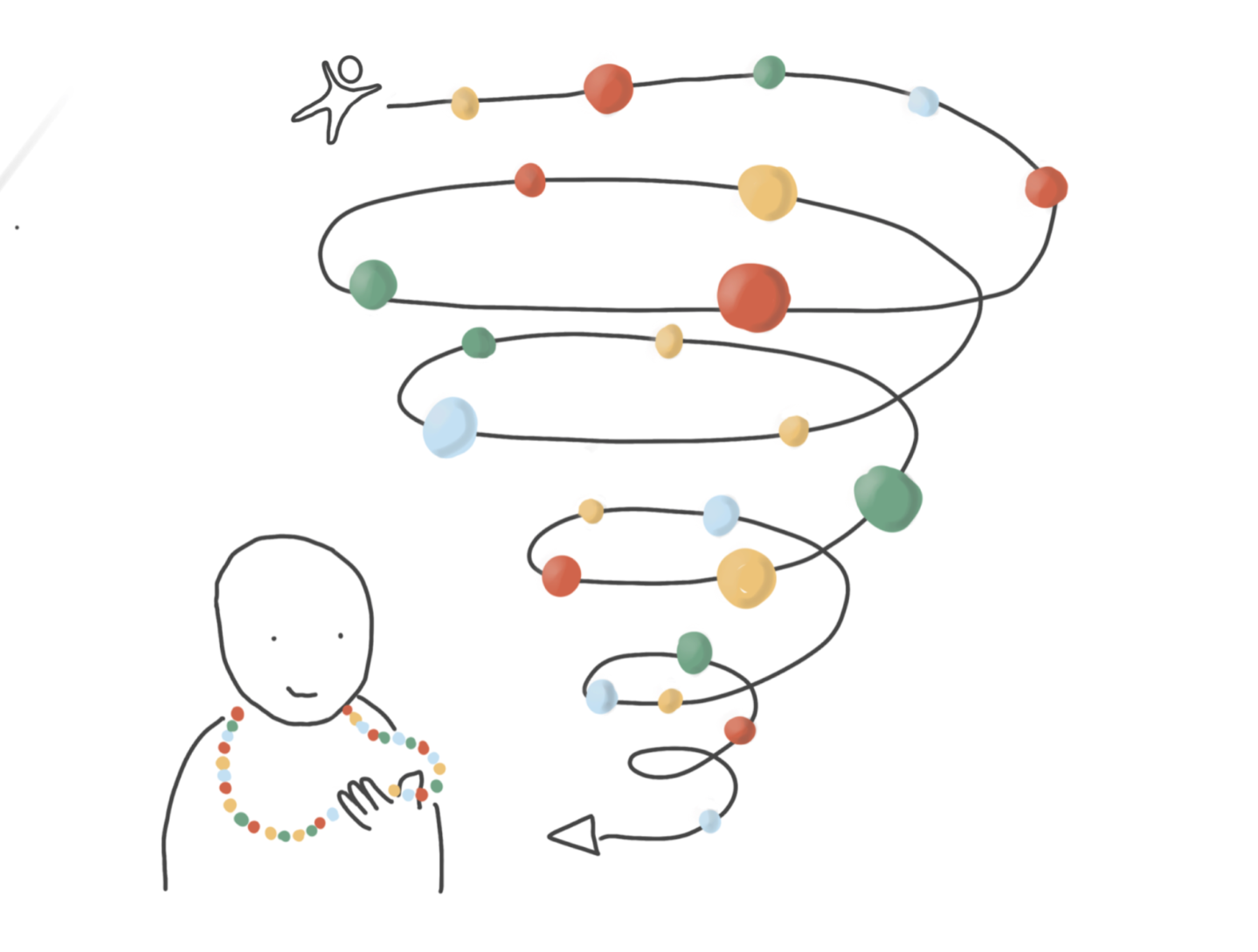Each of the people interviewed had a different intention and journey to get to Swaraj. Similarly, each of them had a different experience while learning at Swaraj. Although there were many differences in their experiences, there were also many similarities that emerged in their reflections about their experiences. The previous article explored stories of Experiential Learning. This article of the Swaraj University series of Live Human Signposts will explore stories relating to Sense-Making & Developing Confidence. And the following article, Networked Power & Peer-to-Peer Learning.
Sense-Making & Developing Confidence
Through the process of their experiences at Swaraj, each person expressed that they were able to develop deeper self-awareness and enhance their ability to make sense of the happenings in the world and subsequently, develop an increased sense of self-efficacy.
Similar to the Cycle Yatra described in the previous article, where Madhur expressed learning about reality through travelling to rural villages without money, he described a trip to a dumpyard. He described that through visiting a dumpyard, and standing on a pile of waste that had children playing barefoot at its base, he began to question progress. He began to question his core beliefs and way of being. He described, “for a young person, of 16-18, who has never thought so much about waste and only thinks, ‘you just put it into the dustbin and somebody takes it away and then it’s gone’. It was pretty shocking… That, I think changed a lot about how I wanted to live, what I wanted to study, how I wanted to consume. It made me question what did human progress mean to me?”

Arti described that, “Swaraj gave us tools to survive”. Like Madhur, she expressed that while at Swaraj, “Most of my fundamental belief systems got shifted.” Arti shared that “In the first 6 months all my confidence went away. I tried many things and failed… ” and that this led to a deep period of depression. Through slowing down, honoring and acknowledging her depression, instead of distracting herself from it, she was able to develop tools to learn with it. She described that she was able to, “come out of it in my own way, and at my own speed … that was really important, because whenever it gets that low I know the tools to come out of it.”
For Stanzin, he had to leave Swaraj to realize the value of the intangible skills that he was gaining. During a brief hiatus from his explorations at Swaraj, Stanzin went to intern, and teach eco-architecture, at an alternative school near his hometown in Ladakh. He described, “When I went back to Ladakh, I told lots of people that what we have is good. … I used to tell them to focus on the more practical learning and all. So, I have got the reaction from them, like wow, you have learned lots of good things, you are a little different than us… When I came they used to appreciate [what I learned].” It was this appreciation that led Stanzin to realize the change in his perception, and actions, and led him to return to Swaraj, to finish his time as a khoji, shortly thereafter. The point that Stanzin emphasized the most was that, while at Swaraj, he “started valuing what I had and what Ladakhi’s have.”
Similarly, Gaurav was finally given a chance to be appreciated for his skills. During our conversation he described many experiments that he did at Swaraj, where if he had an idea, he was promptly encouraged and supported to try it. Describing these experiences, he shared, “These experiences completely changed the perception of what you are capable of doing” and went on to explain, “That gives you empowerment that no college degree or course can give you, that fear… education is always beating you down … those very little tasks opened and removed fear, [and ultimately] opened me.”

Madhur described opening his previously narrow vision of success, where he used to judge the art teacher, and gym teacher, and other people that did manual labor, as failures. Through his internship with a street-vendor in Udaipur he learned, “Everybody can be a teacher and everybody can be a guru”. Madhur went on to explain that he gained a vision, and pathway for what he could do. He shared, “Before Swaraj I thought that people do small scale things because they were not successful. They didn’t get it and that’s why they’re doing it. But, being able to start your own things, make your own networks, define for yourself what education means and what it can be. I think that was very moving for me.”

Similarly for Arti, the meaning of success completely changed, she expressed that, “Before it [success] was all focused on the result, was it good or bad. I forgot to enjoy myself in the process. So, I became the person to first enjoy the process and then worry about the result.” She went on to explain how Swaraj gave her the tools and courage to guide her own journey and upon leaving she described the lasting impact her time there had on her, “I never missed Swaraj because you start to build your own little Swaraj community wherever you are.”
Find out more about the Live Human Signposts Project.
Daniel Rudolph (initiator and author) is interested in exploring alternative, experiential learning opportunities for people of all ages. He is passionate about forming community, and building public spaces for meaningful, transformational gathering. He spends a lot of his time learning juggling and facilitating gatherings. He also enjoys writing and sharing poetry. Dan is currently in an apprenticeship in Vermont at the MAPLE Monastic Academy.
Pia Janzen (illustrator & editor) is excited to visually support projects that inspire us to question and reimagine how we as humans relate to each other and our surroundings. She loves painting people, making music, eating, oceans and being around animals and she is passionate about working towards a more sustainable, liberating and authentic way of being.
Sierra Allen (editor) is a recovering individualist, spiritual forager, storytelling apprentice, unschooler, rock climber, and youth advocate. Sierra is a co-creator of EDiT – Education in Transformation and audiovisual editor and weaver with the Ecoversities Alliance.


